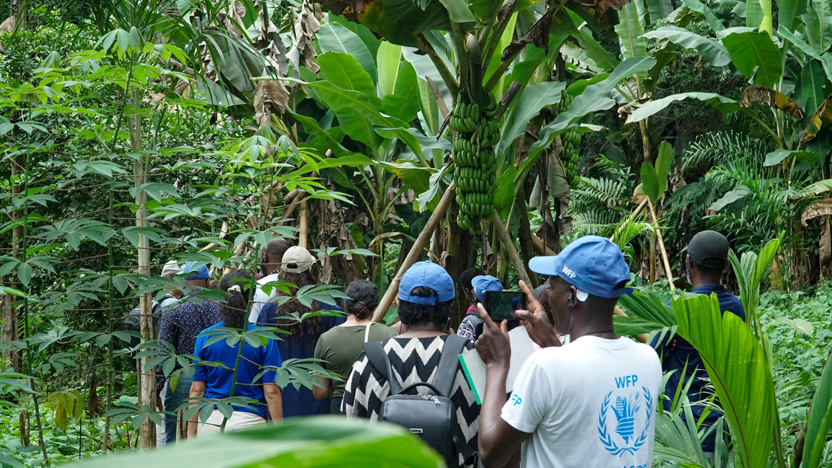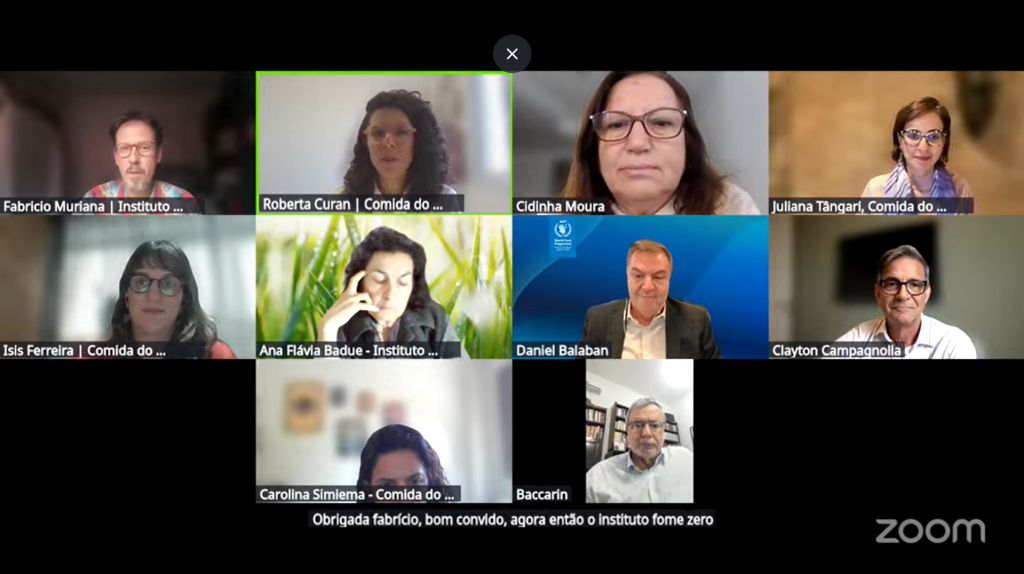
On October 30, the WFP’s Centre of Excellence against Hunger in Brazil participated in the webinar launching the Policy Paper “PNAE as a driver of agroecological transition in Brazil: incentives and institutional arrangements for public procurement of healthy and sustainable foods.” The virtual event brought together experts and institutional partners to discuss ways and recommendations to strengthen agroecological production through the National School Feeding Program (PNAE).
Prepared in partnership with the Food for Tomorrow Institute, the Regenera Institute, the Zero Hunger Institute, and the WFP’s Centre of Excellence against Hunger in Brazil, the document analyzes how the PNAE, internationally recognized as one of the most comprehensive school feeding programs in the world, can drive the agroecological transition of family farming in the country.

During the opening, Daniel Balaban, Director of the WFP’s Centre of Excellence in Brazil, highlighted the global relevance of the PNAE and the importance of integrating school feeding, sustainability, and social justice. “The PNAE is a powerful tool for agroecological transition and the promotion of sustainable food systems because it has a unique ability to stimulate demand for agroecologically produced food, connecting schools with local producers,” he said.
The Policy Paper is part of a global movement that recognizes the potential of school feeding programs to strengthen policies to combat hunger and food insecurity. The study presents six priority recommendations aimed at overcoming regulatory gaps and barriers that still hinder the acquisition of agroecological foods.
In presenting the study, Isis Ferreira, Food Systems Advisor at the Comida do Amanhã Institute, emphasized the need to regulate the category of “agroecological transition,” which would generate greater legal certainty and encourage managers and producers.
Among the main recommendations are: regulating the category of agroecological transition for public procurement; prioritizing the purchase of foodstuffs in agroecological transition in the PNAE; and publishing a Technical Note that recognizes and encourages the purchase of these products with program resources.
These measures seek to provide legal certainty to managers and promote sustainable agricultural practices.
The document concludes that promoting agroecological transition through the PNAE can generate economic, environmental, social, and public health benefits, in line with the Sustainable Development Goals (SDGs).
The webinar also featured Karina Scotton, from the National Fund for Education Development (FNDE); Cidinha Moura, from the Federation of Social and Educational Assistance Agencies (FASE) and the National Council for Food and Nutritional Security (CONSEA); and Ana Flávia Badue, from the Kairós Institute.
Access the full Policy Paper on the Comida para o Amanhã Institute website.




